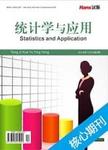基于因果分析算法的成都市AQI预测研究
Study on AQI Forecasting in Chengdu Based on Causal Analysis Algorithm作者机构:成都理工大学数学科学学院四川 成都
出 版 物:《统计学与应用》 (Statistical and Application)
年 卷 期:2025年第14卷第1期
页 面:251-257页
学科分类:07[理学] 070602[理学-大气物理学与大气环境] 0706[理学-大气科学]
摘 要:本文旨在利用因果分析算法PCMCI对成都市空气质量指数(AQI)进行预测。随着城市化的加速,空气污染问题日益严重,因此准确预测AQI对于改善城市空气质量具有重要意义。本文基于成都市AQI预测的背景与现状,介绍了PCMCI算法的基本原理及其在因果分析中的应用。随后,对成都市2019至2023年的AQI数据进行因果分析,识别出与AQI相关的因果变量,并采用长短期记忆网络进行AQI预测。实验结果表明,本文所提方法的预测结果的均方根误差RMSE相较于传统的ARIMA预测模型和单变量LSTM模型预测精度分别提升了22.14%和9.58%,平均绝对百分比误差MAPE相较于传统的ARIMA预测模型和单变量LSTM模型预测精度分别提升了30.98%和11.59%。基于PCMCI提取的因果关系变量能显著提升AQI预测的准确性,能够为成都市的空气质量管理提供有效的决策支持。The aim of this paper is to forecast the air quality index (AQI) in Chengdu by using the causal analysis algorithm PCMCI. With the acceleration of urbanization, the problem of air pollution is becoming more and more serious, so it is of great significance to accurately predict AQI for improving urban air quality. Based on the background and current situation of AQI prediction in Chengdu, this paper introduces the basic principles of PCMCI algorithm and its application in causal analysis. Subsequently, the AQI data of Chengdu from 2019 to 2023 are causally analyzed to identify the causal variables related to AQI, and the long and short-term memory network is used for AQI prediction. The experimental results show that the root mean square error RMSE of the prediction results of the method proposed in this paper improves the prediction accuracy by 22.14% and 9.58% compared with the traditional ARIMA prediction model and univariate LSTM model, respectively, and the mean absolute percentage error MAPE improves the prediction accuracy by 30.98% compared with the traditional ARIMA prediction model and univariate LSTM model by 30.98% and 11.59%. The causal variables extracted based on PCMCI can significantly improve the accuracy of AQI prediction and provide effective decision support for air quality management in Chengdu.




